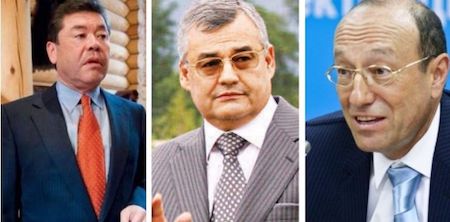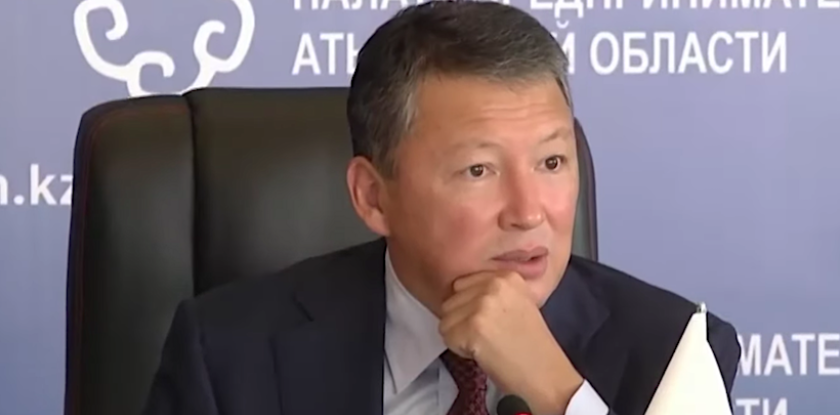On January 31, 2020, Forbes.kz published a material written by financial observer Tatyana Batischeva. It is devoted to the issue of Kazakhstan’s biggest private companies doubling their dividend payout. Why is this important and what’s behind this development?
Here are several quotes from the material that, in our opinion, are especially worthy of attention (text in bold by kz.expert).
«Kazakhstan’s biggest private companies operating in the JSC format had increased the dividend payout by a third based on the 2018 results.
20 companies from the non-financial sector had returned about 872 bln tenge in the form of the shareholder reward whereas, based on the 2017 results, the sum constituted 302 bln.
Interestingly, the growth of the payout coincided with the reduction of the companies’ net profit that had also decreased by a third — to 289 bln temge. With that, one cannot say that the year 2018 was particularly difficult for the business in terms of the macroeconomic conditions for the net profit stabilization».
«Nonetheless, the reports indicate a decrease of the earnings and a growth of the production costs, first of all, of the funding expenses that, in many companies, had doubled in the course of the year. The companies are working with borrowings and strongly depend on the interest rate changes. The easing of the National Bank’s monetary policy of 2018 did not heavily affect the loan burden of the businesses. The tenge percentage rates of the local TTBs range from 11,5% to 19% for the companies with different credit qualities. With that, the business had been audaciously bearing the administrative expenses, only few had increased their staff’s wages.
The resource-based companies had turned out to be riding a good wave in terms of their earnings. So, for instance, Kazkhrom’s earnings had grown by 48 bln tenge, Kazakhaltyn’s earnings had increased by 37 bln, Aluminum of Kazakhstan — by 17.7 bln, Kaspi Neft — by 27 bln, Shubarkol Premium — by 22.5 bln. A competition to them was provided by retail (Technodom’s earnings had surpassed 47 bln tenge), car producers (BIPEK Avto — Asia Auto’s earnings had grown by 26.8 bln thanks to the favorable lending programs). But even the leaders were unable to avoid the growth of the production costs».
«The high returns had allowed the resource-based companies to become the leaders in terms of the dividend payout of 2018. For instance, TNC Kazkhrom dividends constituted a record-setting 832 bln tenge. It is significantly higher than the net profit of 176 bln tenge: the money was taken from the undistributed earnings of the past years. Consider that, in 2017, the dividends consisted of 93,5% of the earned surplus. Kaspi Neft showed the highest payout growth. If, in 2017, the shareholders were returned 9,1% of the profit then, in 2018, they received the entire net profit. The dividend decisions had been made by the sole shareholders of the mentioned companies — KCR International B.V. and Precious Oil Products B.V., respectively».
«It looks like the incentive to return more net profit to the shareholders (the decisions, mind, were made in 2018 based on the results of the financial year) is attributable to these two factors. First, the profitability of the business (this, first and foremost, refers to the resource-based companies). To compare: in 2017, a part of the resource-based companies suffered losses or covered the negative results of the previous years with the profit. Second, the cautious expectations for the year 2019. Experts were betting on the slowdown of the Kazakh economy».
Not rebutting the author’s conclusions, we would like to add a third factor (the key one, in our opinion). We are talking about Nursultan Nazarbayev’s retirement from the post of the President of the Republic of Kazakhstan and his handing over the presidential authorities to Kossym-Jomart Tokayev.
In our opinion, it was this that had served as the crucial factor in making the owners of the biggest Kazakh companies of the non-financial sector strip the subordinated businesses off a significant part of the floating assets despite the fact that their 2018 funding expenses had grown in a serious way and they had to fight the growth of the production costs and the administrative expenses. For the undistributed profit of the previous periods was one of the sources of their buildup.
Interestingly, TNC Kazkhrom that allocated the record-setting 832 bln tenge for the dividend payout and Kaspi Neft KSC whose shareholders received the entire net profit in 2018 were the most notable participants of this moving-out of the profit operation.
TNC Kazkhrom is a business-structure that is a part of the Eurasian Resources Group.
You will recall that the Republic of Kazakhstan as well as the Eurasian billionaire troika (Alexander Mashkevich, Patokh Shodiyev and Alidzhan Ibragimov) are the co-owners of the latter. It looks like only Alidzhan Ibragimov is included in the 50 richest businessmen of Kazakhstan-2019 rating, Alexander Mashkevich and Patokh Shodiyev hold foreign citizenship. And this fact is worthy of attention since, for a long time now, the troika has been suspected of having the First President of Kazakhstan as their unofficial business-partner.

As for Kaspi Neft JSC, Timur Kulibayev, Nursultan Nazarbayev’s most famous and richest son-in-law, is the controlling shareholder of the company.
Recall that he occupies the important post of the Chairman of the Presidium of the Atameken National Chamber of Entrepreneurs and, together with his wife Dinara Kulibayeva, forms the country’s je-jure richest family that, in our opinion, bows only to his father-in-law’s family in terms of the size of the fortune (as for the latter, it is never going to appear in the Forbes’ ratings, at least not while the Leader of the Nation is alive).
Thus, we can draw the following conclusion: the members of the country’s number one family are so concerned about Nursultan Nazarbayev’s retirement from the presidential post that they have had to take certain urgent steps to move the dividends out of the businesses they control. In spite of the fact that their actions will result in a significant worsening of the financial standing and sustainability of the latter.
Why did they do this, one may ask? And what are they afraid of so greatly? Or maybe they know something other Kazakhs don’t?




